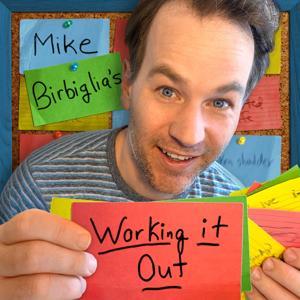Why This Episode Matters:
This episode isn’t about hacks, gear flexes, or shortcuts. It’s about the internal work that makes a long creative life possible. Birocratic opens up about imposter syndrome, optimism, failure, discipline, and the systems he’s built to protect his relationship with music.
If you’ve ever felt behind, overwhelmed, scattered, or unsure whether you’re doing “enough,” this conversation offers a grounded, human counterpoint to the pressure-filled narrative surrounding modern music careers.
Who is Birocratic:
Birocratic is a producer and artist known for warm, melodic, feel-good instrumentals that sit at the intersection of lofi, beat music, and instrumental pop. Beyond his catalog, he’s a working musician in many forms: producer, bassist, engineer, mixing engineer, and collaborator. In this episode, we hear not just about his music, but how he thinks about building a life that can actually sustain creativity.
What We Dive Into:
* Being “the dumbest person in the room” and why that’s a gift
* Playing bass in a band after years as a solo producer
* Developing your ear through listening, transcription, and real-time adaptation
* Why recording yourself is one of the fastest learning tools
* Optimism, accountability, and separating mistakes from identity
* The concept of “personal, permanent, and pervasive” thinking
* Journaling, reflection, and mental health as creative maintenance
* Morning pages, voice memos, and nightly check-ins
* Structure as a gateway to freedom and flow
* Timers, non-zero days, and realistic consistency
* Saying no, setting boundaries, and protecting creative energy
* Collaboration versus solitude, and why both matter
* Redefining success beyond milestones and external validation
Three Key Takeaways:
* Growth Lives in Discomfort: Putting yourself in rooms where you’re less experienced can be humbling, but it’s one of the fastest paths to real development. Being surrounded by people who are better than you isn’t a failure. It’s an opportunity.
* Structure Protects Inspiration: Clean spaces, clear schedules, timers, and reflection aren’t constraints. They’re what make flow possible. When the basics are handled, your creativity has room to breathe.
* Success Is a Series of Good Days: Success isn’t one moment or metric. It’s built from showing up, doing what you said you’d do, and ending the day feeling aligned. Stack enough of those days, and the bigger picture takes care of itself.
Join the ProducerHead Community
If you’re not subscribed yet, you’ll get access to submit your released music for features, send works-in-progress for feedback, plus two free tools: The Invisible Instruments (a collection of ideas to help you in and out of the studio) and Sonic Stimulus Vol. 1 (a sample pack I made specifically for this community). All free.
Before You Go:
Ask yourself what version of music-making actually feels good in your body and your life. Not what looks impressive online, but what you could realistically sustain for years. Then start building toward that, one small action at a time.
Chapters:
0:00 – Intro
1:48 – Meeting in real life and setting the tone
4:32 – Being the least experienced person in the room
8:10 – Playing bass in a band and learning to truly listen
13:05 – Developing your ear through repetition and mistakes
18:42 – Recording yourself as a learning tool
23:55 – Separating identity from performance
29:40 – Optimism vs negative self-talk
34:28 – Journaling, reflection, and mental maintenance
40:15 – Morning pages and daily check-ins
45:22 – Structure, routines, and creative freedom
51:10 – Timers, non-zero days, and realistic consistency
57:35 – Saying no and protecting creative energy
1:03:40 – Collaboration versus solitude
1:09:15 – Redefining success beyond milestones
1:15:30 – Building a life that supports creativity
1:21:10 – Long-term sustainability and avoiding burnout
1:26:05 – Perspective shifts from touring and collaboration
1:31:40 – Advice to younger producers
1:36:55 – Letting go of comparison
1:41:20 – What keeps music fun
1:46:10 – Current inspirations and creative curiosity
1:51:35 – What’s next for Birocratic
1:56:10 – Final reflections on growth and optimism
2:00:45 – Closing thoughts
2:03:00 – Outro
List of References from the Interview:
Books / Concepts
* Learned Optimism by Martin Seligman
* The Artist’s Way by Julia Cameron
* Atomic Habits by James Clear
Gear / Tools
* Fender P-Bass
* Ableton Live
Connect with Birocratic:
* YouTube: Birocratic
* Instagram: @birocratic
* Spotify: Birocratic
* Apple Music: Birocratic
Connect with Toru:
* Website: torubeat.com
* Instagram: @torubeat
* YouTube: @torubeat
* Spotify: Toru
* Apple Music: Toru
Credits:
This episode was co-produced, engineered and edited by Matthew Diaz. From ProducerHead, this is Toru, and in a way, so are you. Peace.
Get full access to ProducerHead at producerhead.substack.com/subscribe



























